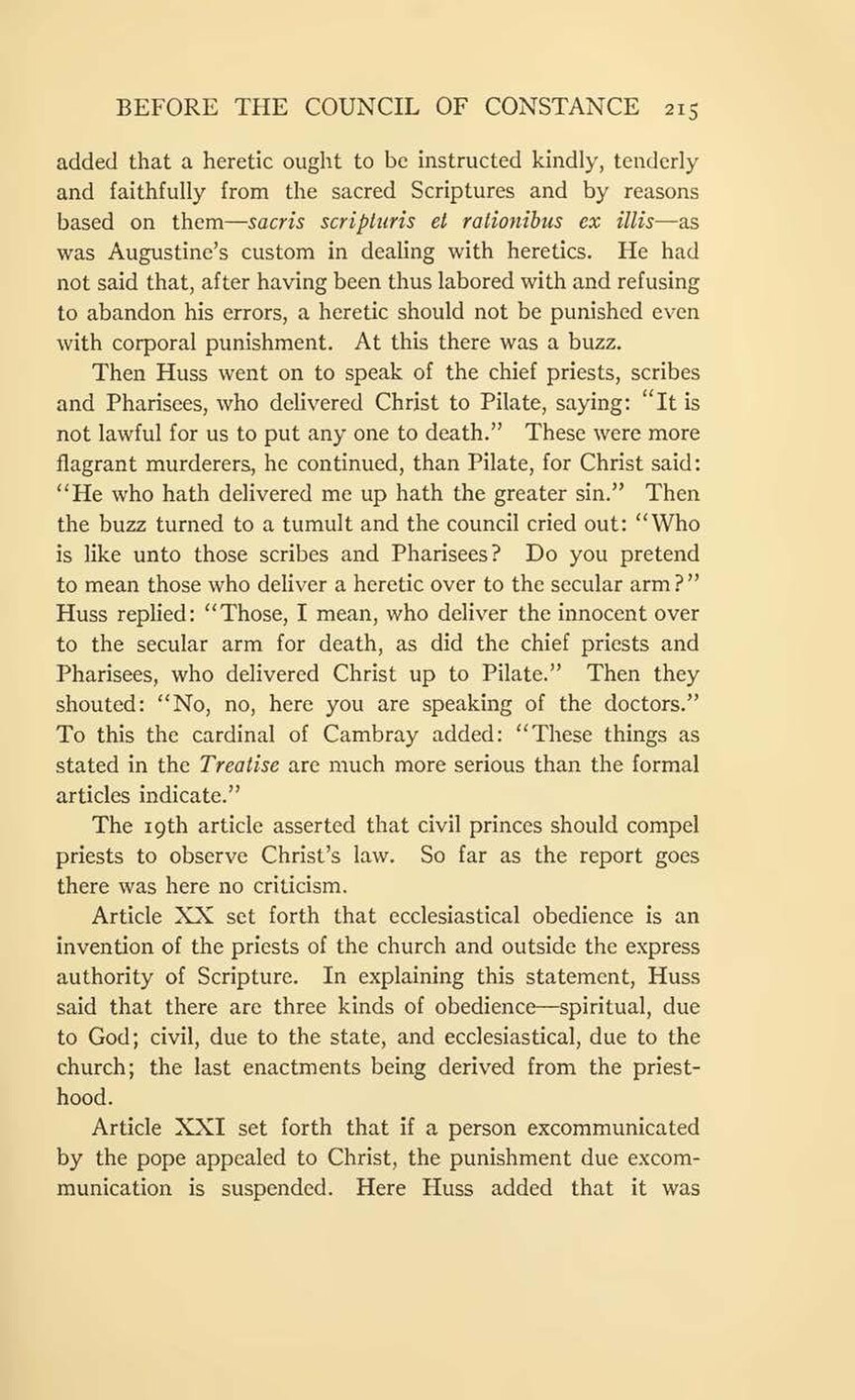added that a heretic ought to be instructed kindly, tenderly and faithfully from the sacred Scriptures and by reasons based on them—sacris scripturis et rationibus ex illis—as was Augustine’s custom in dealing with heretics. He had not said that, after having been thus labored with and refusing to abandon his errors, a heretic should not be punished even with corporal punishment. At this there was a buzz.
Then Huss went on to speak of the chief priests, scribes and Pharisees, who delivered Christ to Pilate, saying: “It is not lawful for us to put any one to death.” These were more flagrant murderers, he continued, than Pilate, for Christ said: “He who hath delivered me up hath the greater sin.” Then the buzz turned to a tumult and the council cried out: “Who is like unto those scribes and Pharisees? Do you pretend to mean those who deliver a heretic over to the secular arm?” Huss replied: “Those, I mean, who deliver the innocent over to the secular arm for death, as did the chief priests and Pharisees, who delivered Christ up to Pilate.” Then they shouted: “No, no, here you are speaking of the doctors.” To this the cardinal of Cambray added: “These things as stated in the Treatise are much more serious than the formal articles indicate.”
The 19th article asserted that civil princes should compel priests to observe Christ’s law. So far as the report goes there was here no criticism.
Article XX set forth that ecclesiastical obedience is an invention of the priests of the church and outside the express authority of Scripture. In explaining this statement, Huss said that there are three kinds of obedience—spiritual, due to God; civil, due to the state, and ecclesiastical, due to the church; the last enactments being derived from the priesthood.
Article XXI set forth that if a person excommunicated by the pope appealed to Christ, the punishment due excommunication is suspended. Here Huss added that it was
